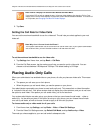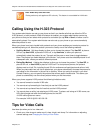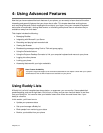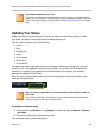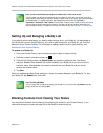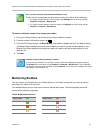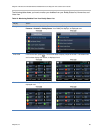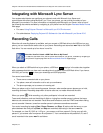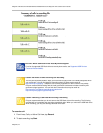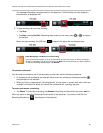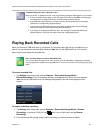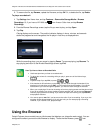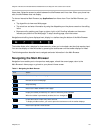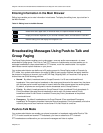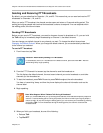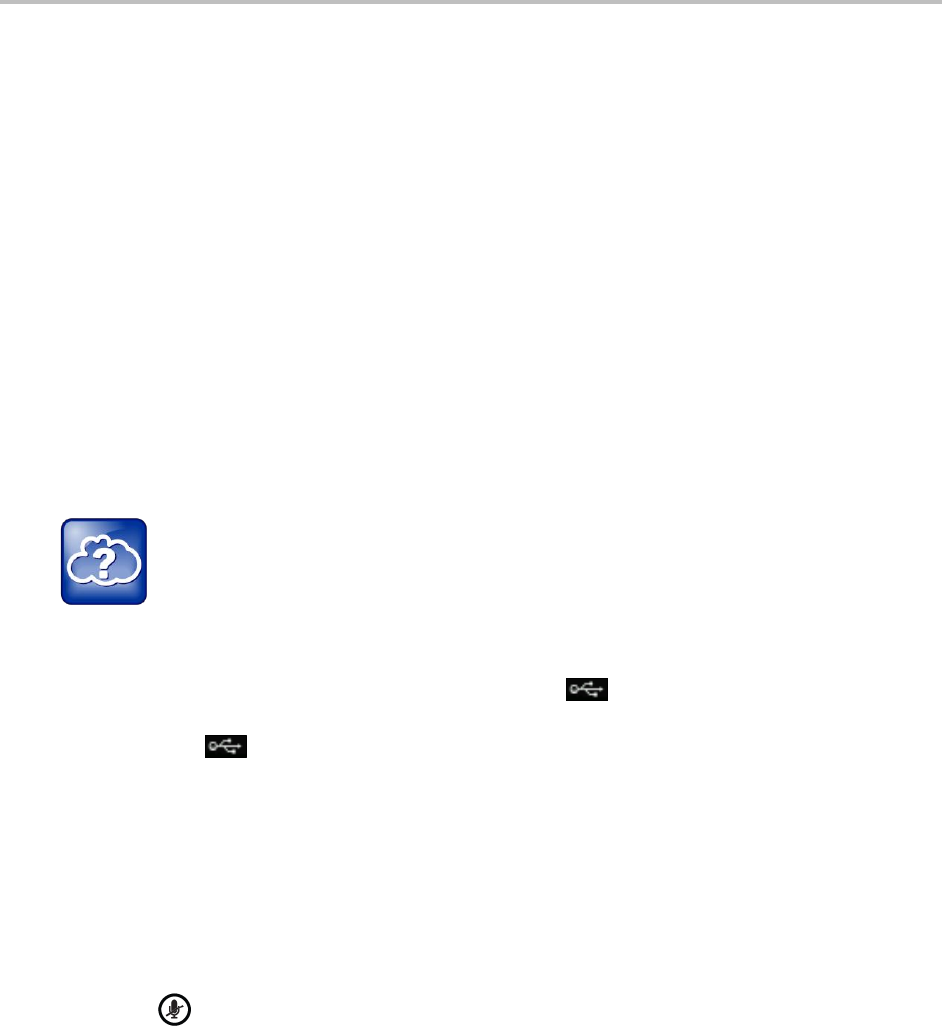
Polycom VVX 500 and VVX 600 Business Media Phones and Polycom VVX Camera User’s Guide
Polycom, Inc. 96
Integrating with Microsoft Lync Server
Your system administrator can configure your phone to work with Microsoft Lync Server and
communicate with others using Microsoft Lync. From your phone, you can monitor the status of your
Microsoft Lync contacts. For more information on integrating with Microsoft Lync Server, refer to one of
the following documents available by navigating to your phone from the Polycom Business Media Phones
Web page:
For users: Using Polycom Phones in a Microsoft Lync 2010 Environment
For administrators: Deploying Polycom UC Software for Use with Microsoft Lync Server 2010
Recording Calls
When the call recording feature is available, and you connect a USB flash drive to the USB port on your
phone, you can record active audio calls on your phone. Recordings are stored as .wav files on the USB
flash drive. You can record up to four hours in one file.
Web Info: How Do I Attach a USB Flash Drive to My Phone?
To attach a USB flash drive, see the Quick Start Guide for your phone, available by navigating to
your phone’s Support page from the Business Media Phones Support page.
When you attach a USB flash drive to your phone, a USB icon, , displays in the status bar, together
with a message that tells you how much recording time is available on the USB flash drive. If you have a
VVX 600, you can tap to view your recordings and USB properties.
You cannot record when:
There are no connected calls on your phone.
You place a new call to transfer a call or set up a conference.
The phone prompts you to answer an incoming call.
When you place a call on hold, recording pauses. However, when another person places you on hold,
recording continues. Recording stops when all active calls end, no matter who ends the calls.
When you press while recording, only other participants in the call are recorded.
Tones and indications, such as the dialing of digits or ringing from another person’s phone, that occur
before a call connects are not recorded. Local tones and indications, such as DTMF tones when dialing,
are not recorded. However, tones from another person’s phone are sometimes recorded.
You control recording by tapping Start, Pause, Resume, and Stop. All active calls that occur on your
phone between the time you tap Start and Stop are recorded, alternating in the same .wav file.
For example, on June 22, 2012 at 11:22 a.m., you answer a call from person A. During your call with
person A, you answer calls from person B and person C. Your conversations with persons A, B, and C
are all recorded in the same .wav file as follows:



